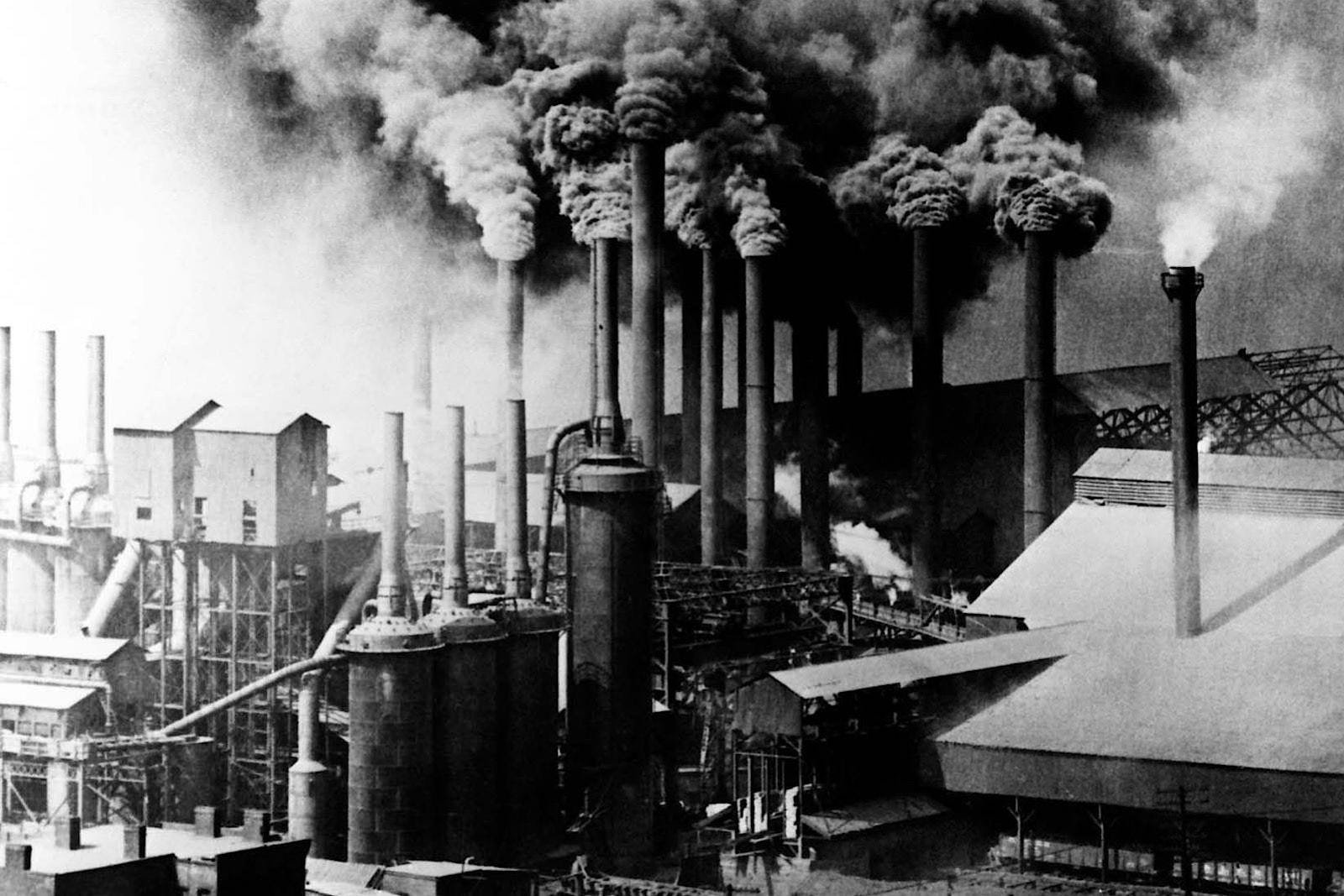Muhammad Kaleem
The Industrial Revolution, a pivotal moment in modern history, marked the transition from an agrarian and handicraft-based economy to one dominated by industry and machine manufacturing. This period gave rise to groundbreaking technological advancements that revolutionized the way people lived and worked, fundamentally transforming societies across the globe. Originating in Britain in the 18th century, the effects of the Industrial Revolution extended globally, shaping the economic and social landscapes of nations far and wide.
Initially popularized by the English economic historian Arnold Toynbee in the 19th century, the term’ Industrial Revolution’ was primarily used to describe Britain’s economic development from 1760 to 1840. Over time, the term has evolved to encompass a broader understanding of economic transformation, rather than being limited to a specific time period or geographical location. This evolution of the term acknowledges that industrial revolutions occurred at different times in various regions, highlighting the diverse paths of industrialization experienced by countries such as China, India, the United States, and western Europe, and demonstrating its continued relevance in historical analysis.
The Industrial Revolution was characterized by a multitude of technological, socioeconomic, and cultural changes that reshaped the fabric of society. From the adoption of new materials like iron and steel to the harnessing of novel energy sources such as coal and steam power, the technological innovations of the Industrial Revolution were the driving force behind unprecedented industrial growth. The invention of new machinery, including the spinning jenny and power loom, revolutionized production methods, enabling greater output with reduced human effort. These advancements, coupled with the emergence of the factory system and significant developments in transportation and communication, ushered in an era of mass production and global connectivity.
Beyond technological advancements, the Industrial Revolution brought about sweeping changes in nonindustrial domains. Agricultural improvements led to increased food production, supporting a burgeoning nonagricultural population. Economic shifts resulted in greater wealth distribution and the rise of international trade, while political and social transformations shaped new patterns of authority and urbanization. Workers transitioned from craftsmen using hand tools to machine operators in factory settings, marking a shift in labor practices and skill sets. Overall, the Industrial Revolution instilled a heightened sense of confidence in humanity’s ability to master nature and utilize resources for progress.
The initial phase of the Industrial Revolution was predominantly centered in Britain from 1760 to 1830, during which the country held a monopoly on industrial advancements. However, as industrial innovations proliferated, the influence of the Industrial Revolution spread beyond Britain’s borders, with Belgium becoming the first country in continental Europe to experience economic transformation. France, while initially slower to industrialize due to its internal political upheaval, eventually emerged as an industrial power. Meanwhile, countries like Germany, the United States, and Japan experienced their own industrial revolutions, each contributing to the global industrial landscape.
The second Industrial Revolution, which unfolded in the late 19th and 20th centuries, marked a new wave of industrial advancement characterized by the exploitation of previously untapped natural and synthetic resources. Innovations in machines, tools, and computers led to the rise of automatic factories, while changes in ownership of the means of production and shifts in political ideologies further transformed the industrial and economic landscapes.
Undoubtedly, the Industrial Revolution brought about significant sociocultural changes, enhancing material conveniences and propelling technological innovations. While early stages of the Industrial Revolution initially exacerbated poverty and labor challenges, subsequent developments aimed to address these issues, fostering a climate of progress and evolution.
Concludingly, the Industrial Revolution stands as a watershed moment in human history, reshaping economies, societies, and daily life. Its enduring legacy continues to influence modern industrial practices and technology, underscoring its profound and lasting impact on the course of human development.

















